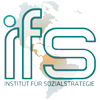6 March 2024 the first Inclusivity Index Conference held in a hybrid format at the Global Ethic Institute in Tübingen. This important event attracted a large number of participants from academia and business. The hybrid format of the event provided an opportunity for colleagues from Europe, Central Asia and Latin America to exchange ideas on inclusive development.
Two main themes of the conference – the Global Inclusivity Index and the best practices for inclusive development – were addressed by Prof. Dr. Dr. Dr.h.c. Ulrich Hemel, Director of the Global Ethics Institute. A key concept in the formulation of social strategies is the removal of bottlenecks (“de-bottlenecking”) that blocks development. It is important to use the Index model and the theoretical lens of inclusive development to analyse and debottlenecking these barriers. Dr. Ulrich Hemel invited the audience to work collaboratively in this field.

The best practices for inclusive development were presented in cases of reduced corruption perception and carbon footprint management. The examples presented by Dr. Ulrich Hemel included interesting and unexpected comparisons, e.g. between GDP and carbon footprints, and the impact of carbon footprints on poverty. Such comparisons provided new perspectives on the inclusive transformation of societies in developing countries.
Nurzat Sultanalieva from the Global Ethic Institute spoke about successful anti-corruption practices in different countries and debottleneck corruption risks. Dr. Valerij Goncharov from the Institute of Social Strategy gave a short overview of visualisation the Inclusivity Index and gave some examples of quick and extended analysis. Dr.phil. Gabriele Sigg held an interesting presentation on whether cultural bias towards certain countries hinders inclusive development.
Other colleagues’ presentations focused on implementing the Inclusivity Index for academic cooperation and debottleneck of international barriers. Most participants considered that the Inclusivity Index could be a catalyst for active cooperation between academic institutions, transnational business and development agencies and think tanks.
The presentation by the Mexican economist Alberto Equihua showed the possibilities of working with think tanks to promote inclusive ideas of development in Latin America. The Secretary General of the Uniapac Foundation, Rodrigo Whitelaw, expressed his hope for an intensification of work with global institutions such as UNIAPAC and UNESCO. An important area of practical application of the philosophy of inclusive development could be cooperation with religious institutions and organisations (“Religions for Peace”, COMECE, Ordo Socialis).
At the end of the discussion, the conference delegates agreed to intensify the work and teste Inclusive Development methodologies with a view to participating in the Conference on July 2nd/3rd at the Hannover Research Institute of Philosophy.
Valerij Goncharov

